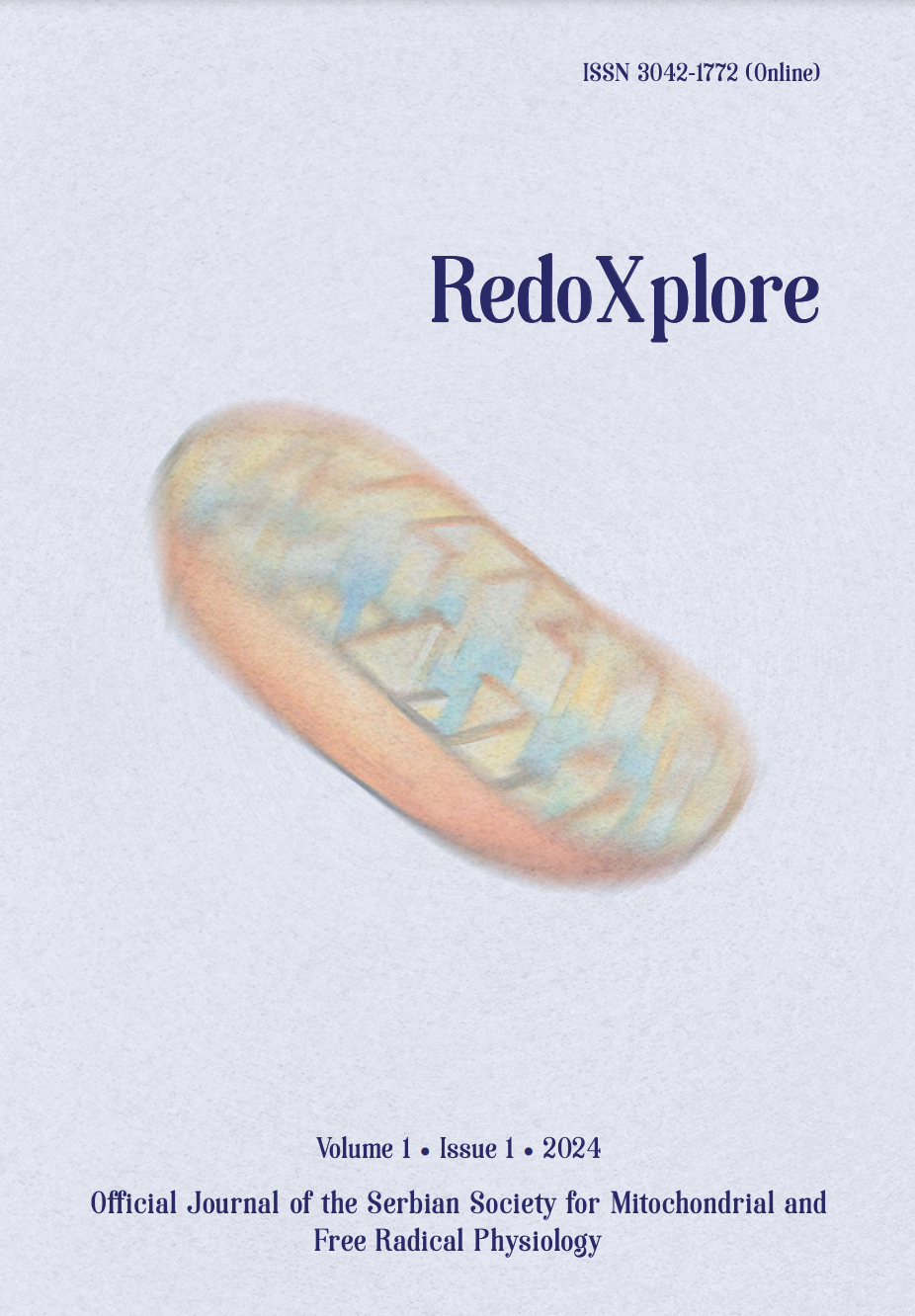Current issue

Volume 1, Issue 1, 2024
Online ISSN: 3042-1772
Volume 1 , Issue 1, (2024)
Published: 29.08.2024.
Open Access
All issues
Contents
29.08.2024.
Professional paper
FMP40 AMPYLASE REGULATES CELL SURVIVAL UPON OXIDATIVE STRESS BY CONTROLLING PRX1 AND TRX3 OXIDATION
AMPylation (adenylation) is one of the post-translational protein modifications (PTM) leading to the diversification of protein functions and activity. With our collaborators, we discovered that the SelO family members of humans, yeast, and E. coli have AMPylase activity. The yeast SelO – Fmp40 – was identified in the proteome of the inter-membrane space of mitochondria. We have shown that Fmp40 is involved in the response of cells to hydrogen peroxide (H2O2) and menadione treatment: cells lacking the Fmp40 AMPylase grow sensitivity upon H2O2 and menadione treatment. E. coli SelO AMPylates glutaredoxin GrxA and the s-glutathionylation level of proteins is reduced in bacterial and yeast cells lacking SelO1. The objective of the study is to reveal the biological functions of Fmp40 in mitochondrial redox regulation. The decreased survival of fmp40Δ cells, observed in survival tests, depends on the oxidation of Trx3 upon oxidative stress. In contrast, we verified that fmp40Δ cells are resistant upon exposure to high concentrations of the hydrogen peroxide - phenotype dependent on the presence of the Glutaredoxin Grx2, Thioredoxin Trx3, Peroxiredoxin Prx1, Oxidation Resistance Oxr1, and Apoptotic inducing factor Aif1 basing on qPCR analysis. We found multidimensional genetic interactions of FMP40 with other known redox genes upon low or high oxidative stress. We revealed that Fmp40 AMPylates Prx1, Trx3, and Grx2 in vitro and it has a matrix-localized echo form. We discovered that Fmp40 is critical for the efficient reduction of Prx1 upon high oxidative stress. Moreover, Grx2 is involved in the Prx1 reduction directly and at the level of Trx3 reduction in vivo. Fmp40 regulates its function on Trx3 protein, most probably through Threonine66 which is AMPylated in vivo. In addition, Fmp40 is necessary to maintain the balance of cellular redox buffers GSH and NADPH. Overall Fmp40 regulates redox gene expression for efficient ROS neutralization and signaling which eventually determines the fate of cell survival upon oxidative stress.
Financed by National Science Centre of Poland: 2018/31/B/NZ3/01117.
Masanta Suchismita, Aneta Wiesyk, Chiranjit Panja, Sylwia Pilch, Jaroslaw Ciesla, Marta Sipko, Abhipsita De, Tuguldur Enkhbaatar, Roman Maslanka, Adrianna Skoneczna, Roza Kucharczyk





